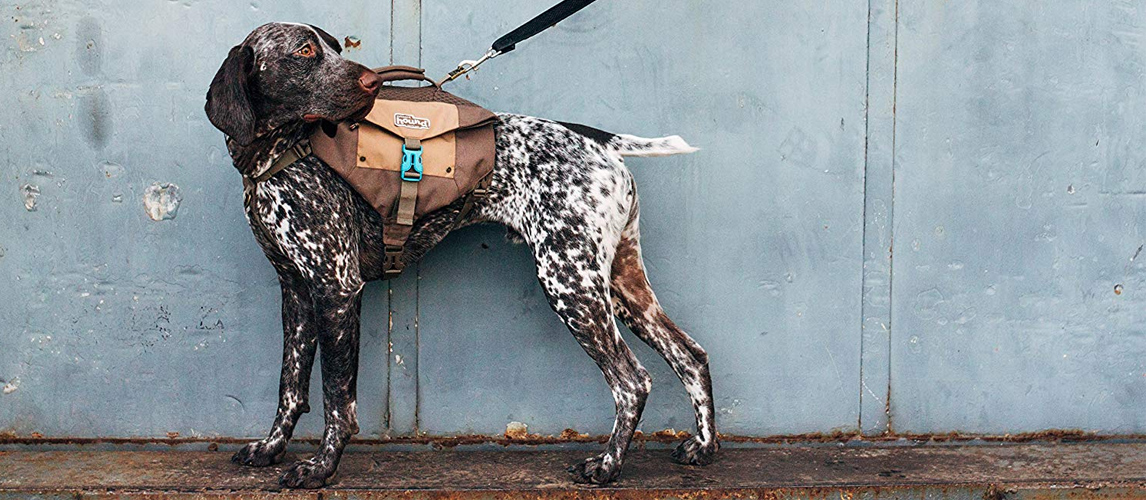Known as man’s (and woman’s!) best friend, a dog makes an ideal companion for many people, especially if you like getting out and about. For starters, most mutts don’t moan or nag for ice cream like kids do on long distance walks! This article looks at five of the sturdiest breeds for your outdoor adventures, but first, a few basic principles will help inform your decision:
- No matter what dog you choose, if you want him to accompany you outdoors on long hikes, good training becomes extra-important. You must have confidence in him obeying your orders, such as returning to you on command; not only for his own safety, but for yours and for fellow hikers too.
- It’s worth noting short-haired breeds will generally be much easier to clean up after a muddy hike. If you live in cooler climes and love extended walks, though, then a long-haired dog is naturally equipped to stay warmer for longer – but they will need extra grooming.
- You should study the individual breed’s potential for typical health problems and be aware of symptoms so you can spot them early if they occur. It’s also vital that you know some basic dog first aid and take kit with you to treat any scratches, bites or paw injuries on the way.
Related Post: Best Dog Tents
Now, let’s take a look at our five top picks for best dog breeds for hiking!
Border Collie
Originally bred as a working dog to follow instructions when herding livestock such as sheep, the Border Collie has a reputation as being one of the smartest dog breeds. This ability to learn and respond obediently to commands marks it out as a superb companion on the hiking trail. They’re classed as a medium-sized breed with a mid-length coat, so may need a good swill down after a muddy walk. In temperament, they can get bored easily if not given access to a lot of physical exercise, and plenty of mental stimulation too. Failing to provide them with this can lead to destructive behaviors at home, so if you have an active, outdoor lifestyle, this dog will love to accompany you wherever and for however long you wander!
The breed has a lifespan of around 10 to 14 years and most common health problems center on the eyesight and hearing as the dog ages; but it can also be prone to more serious ailments such as canine hip dysplasia (CHD). Look for signs of reduced mobility, a reluctance to leap or run and lameness in the hind limbs.
Related Post: Dog Food for Border Collies
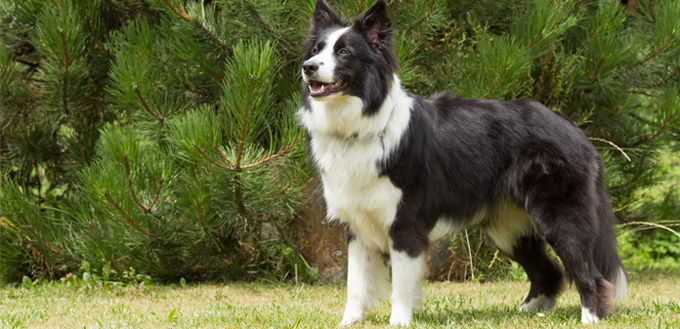
Labrador Retriever
As the name suggests, this Lab was bred to be a retriever-gun dog, so is well-suited genetically for the outdoors life. They’re medium to large dogs and tend to be short-haired, so excess grooming is not necessary. One notable feature of this breed is its webbed toes: if wild swimming or wading across rivers is your thing, the Labrador Retriever will be right alongside you! The webbing also protects the paws when trekking through snow, an activity that’s painful for other breeds. In terms of temperament, the Labrador Retriever is famous for its role as an assistance dog for the disabled, so with the right training, this pet will obediently follow your commands. They’re also patient and good-natured, so an asset when there are kids around.
Their typical lifespan is 10 to 12 years. As with the Border Collie, the Lab may show signs of CHD either in youth or with the onset of old age related to conditions like canine arthritis. They may also have problems with other joints, notably the knees, elbows, and shoulders. If your pooch shies away from running and jumping, or is slow to get up from lying down, it may be worth consulting your vet.
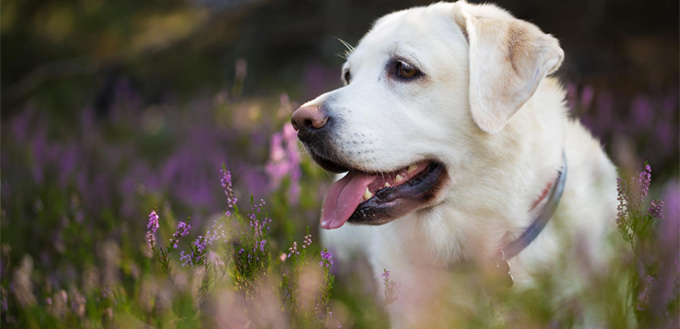
Jack Russell Terrier
Don’t think you need a huge dog to accompany you when you’re out and about. Some smaller dogs, despite their diminutive size, have an almost unquenchable thirst for exercise, like the Jack Russell. They’re also hugely curious intellectually and love the stimulation of getting out and about. Add to that the fact that they’re great at jumping – they can leap around 5 feet or more – and never seem to run out of energy, and you can see what makes them such an endearing companion on the trail. Bred to hunt, there’s a good chance they might shoot off after every passing squirrel, and they are known to show aggression towards other dogs, so you’re best keeping them on a tight leash in busier areas.
The life expectancy of a Jack Russell is between 13 and 16 years. They can be liable to obesity if not exercised properly and overfed, but otherwise tend to have far fewer health problems than the average dog breed.
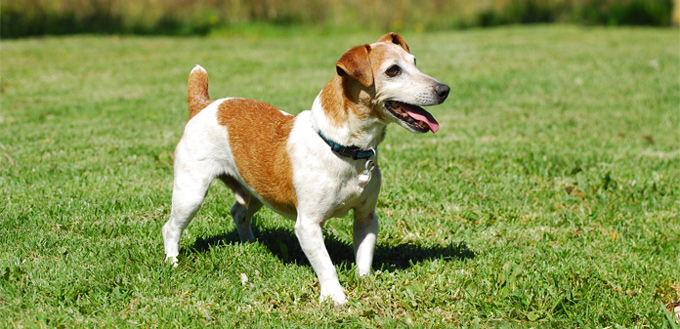
Siberian Husky
If you think about it, a Husky is a no-brainer for long distance walking – after all, they were specifically bred to cover miles of ground every day of their working lives. If you think you can trek for hours without tiring, the average Siberian Husky will keep pace with you with ease. They’re pack dogs by nature too, happiest when they have companions in travel, so your pet will stick close to your side throughout the journey. More than that, they are used to hauling weight, so a Siberian Husky will even lighten your load by carrying their own supplies of water and so on. This breed is a medium-sized dog with a thick, furry double coat, so it copes well with inclement weather. They’re very responsive to training and are classified as being good with kids and other pets.
They have a good lifespan in dog terms too – usually between 12 and 15 years. Hip dysplasia can be an inherited condition, resulting in arthritis, or in more serious cases needing surgery. There is also a possibility of eyesight problems, most commonly cataracts.
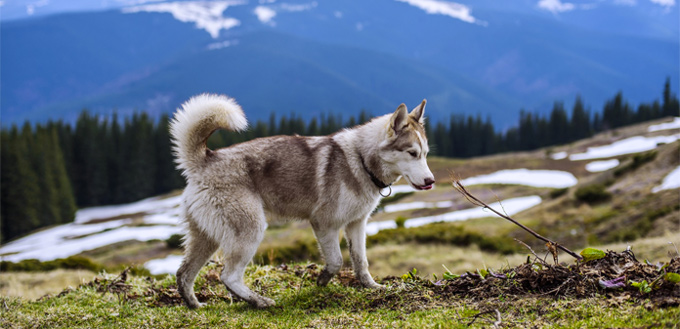
Portuguese Water Dog
Last of our picks is the Portuguese Water Dog (PWD), whose temperament makes him ideally suited for outdoorsy activities. Like the Labrador Retriever, this breed is extremely good-natured and responds well to command, on or off the leash, with good training. The Portuguese Water Dog is also tireless, highly intelligent and loves the mental stimulation of a long walk. In terms of their heritage, they were originally bred by Portuguese fisherman to assist by herding fish into nets, retrieving working tools, and even carrying messages and small items from ship to shore! They too have webbed toes, so walks that incorporate swimming or water generally are no problem for this breed. Despite the luxuriant appearance of their curly coats, PWDs don’t shed. Their hair needs frequent brushing and will keep growing if not trimmed every two months or so.
Related Post: Dog Shedding Brush
Their average lifespan is between 10 and 14 years. Common health issues include hereditary hip dysplasia and more seriously, Juvenile Dilated Cardiomyopathy, a fatal condition that will manifest in the PWD’s first year of life. Less seriously, some are also prone to conditions related to hair loss.
Related Post: Best Dog Bike Trailers
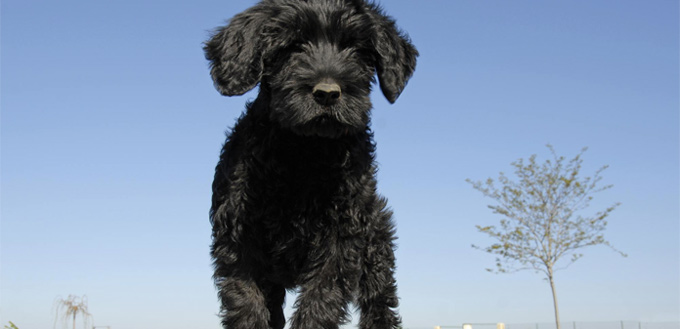
Sources:
- Laura Cross, Best Dog Breeds for People Who Like to Travel, Vetstreet






